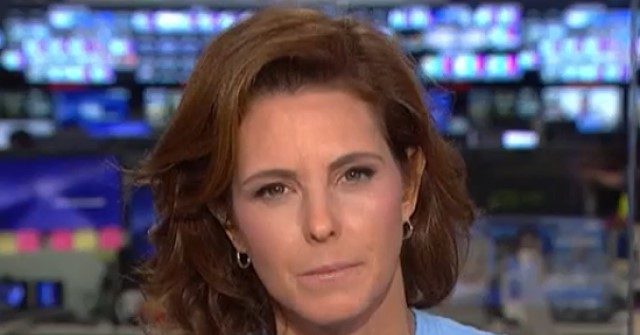In a recent broadcast on MSNBC’s “The 11th Hour,” host Stephanie Ruhle addressed the implications of former President Donald Trump’s potential reelection, reflecting on the broader sentiments of voters. Ruhle emphasized that the decision to reelect Trump symbolizes a choice made by a significant portion of the population to explore uncharted territory. She reiterated that the discussion ought to extend beyond Trump and his rivals, delving into the root causes of dissatisfaction among the American populace. Recognizing the current system’s rejection by many citizens asks us to examine the fundamental questions regarding the nation’s collective identity and aspirations.
Ruhle highlighted the paradox at play in a nation characterized by immense wealth and power, one simultaneously grappling with feelings of decline. While America boasts a robust economy, profound sentiments of disenchantment persist, as many citizens perceive that they are losing ground. This dissonance between objective economic indicators and subjective feelings of insecurity raises critical questions about the prevailing narratives shaping public opinion. Ruhle poignantly noted that misinformation has permeated the discourse, becoming an accepted facet of modern communication, which complicates understanding the true state of affairs.
Ruhle pointed to various concerns, such as the economy, immigration, and evolving cultural norms often labeled as “wokeism,” which have generated widespread anxiety and frustration. In her analysis, she critiqued the prevailing narrative that fuels the perception of decline, suggesting that despite legitimate economic progress, the emotional and psychological undercurrents suggest a need for change. The pervasive sense of discontent, despite tangible successes, speaks to a collective yearning for a shift in leadership and direction—an impulse that has led many to believe that Trump represents a viable alternative.
In contemplating the future trajectory of the country with Trump at the helm, Ruhle provocatively posed the question, “What will the future hold?” This entreaty underscores the uncertainty surrounding the ramifications of embracing a leader who has a mixed legacy—having achieved the presidency twice while also presiding over a business collapse. This duality embodies the complexities of voter sentiment where charisma, personality, and narratives often overshadow empirical performance metrics. Ruhle’s assertion that the nation is prepared to “F around and find out” encapsulates the experimental essence of the electorate’s decision; they are willing to take risks on leadership that deviates from the status quo.
Ruhle’s commentary reveals a wellspring of frustration within the populace that extends beyond mere political preferences; it is deeply rooted in the struggle for identity and purpose in an evolving society. By rejecting established norms and governance frameworks, voters are seeking leaders who resonate with their grievances and aspirations, even if that means endorsing controversial figures. This quest for connection and authenticity is a powerful motivator in the current political climate, illustrating how emotional and psychological factors can significantly influence the electoral landscape.
Ultimately, Ruhle’s reflections serve as a reminder of the complexities inherent in a divided nation where significant portions of the populace feel unheard and disillusioned. The consequences of these feelings are profound, challenging traditional political paradigms and demanding a reevaluation of the narratives that define American society. As the nation looks toward the future, understanding the root causes of discontent will be crucial for fostering dialogue, rebuilding trust in institutions, and addressing the underlying issues that continue to drive wedges between different factions of society. The road ahead is fraught with uncertainty, but it also presents an opportunity for meaningful engagement, reflection, and potential transformation.

